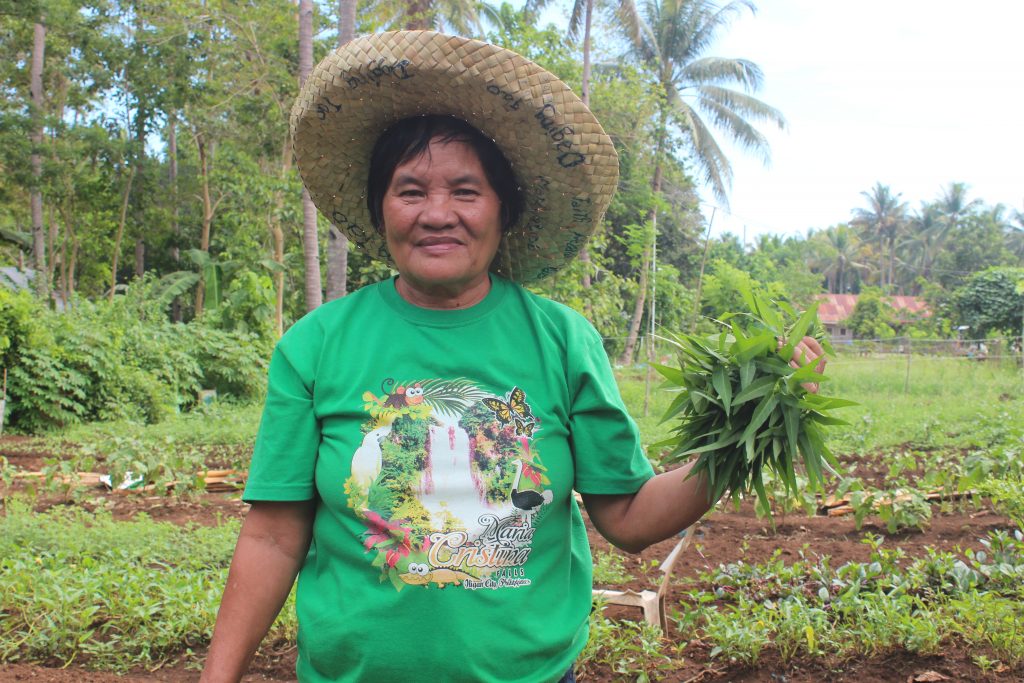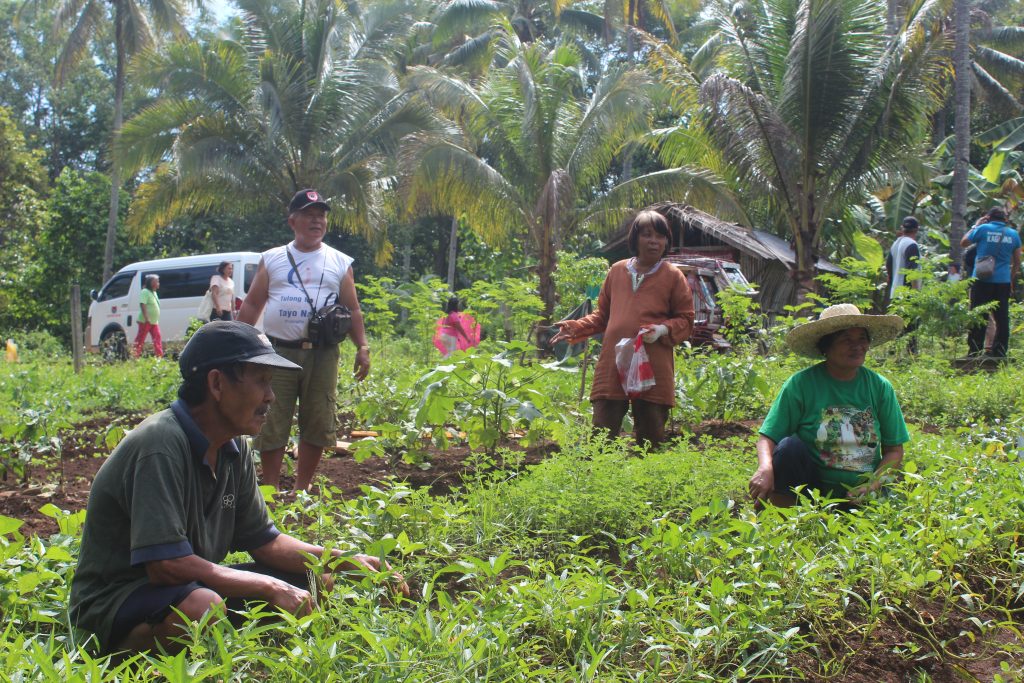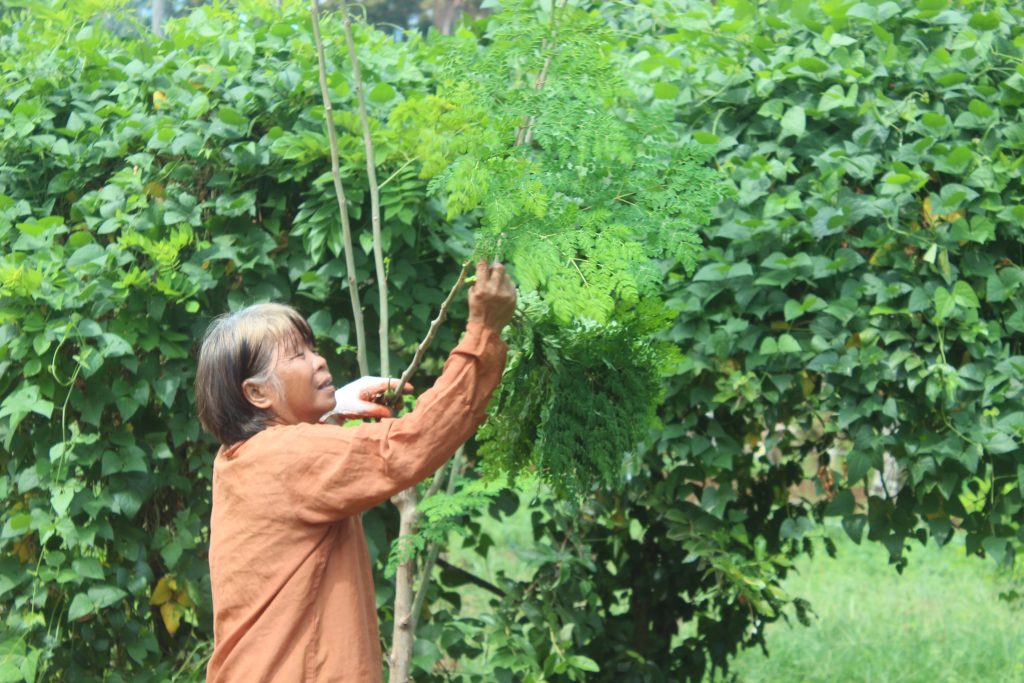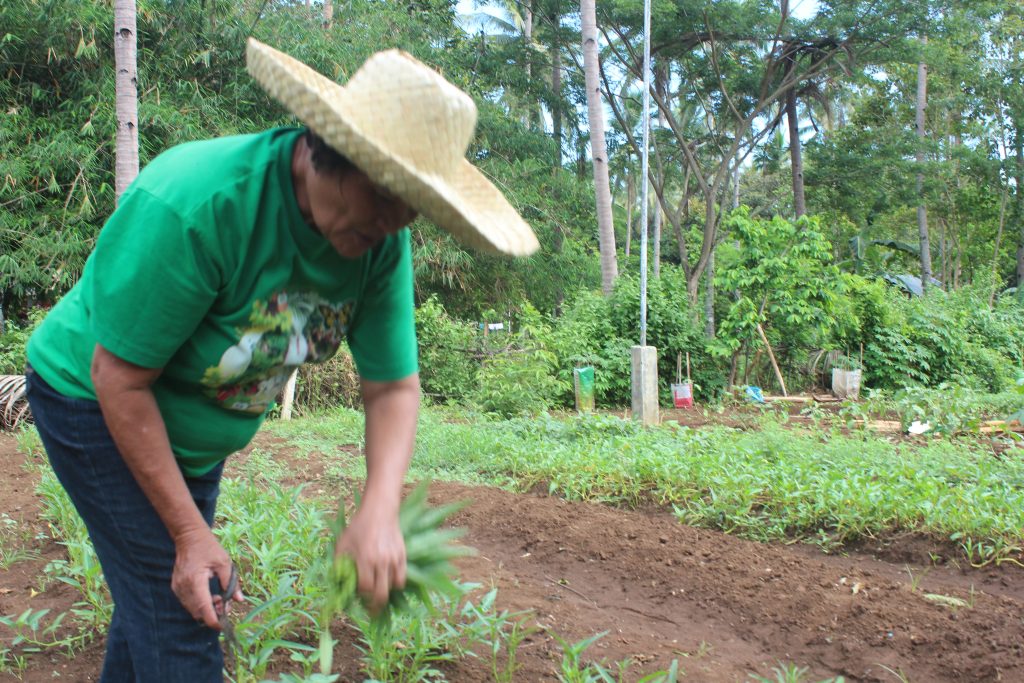
Iligan City — Never did it cross Estrella’s mind that she would be leading a group of farmers in Barangay Ditucalan, Iligan City, considering her humble beginnings.
Estrella N. Tao, a 64-year-old gardener in a small village called Makugihon in Barangay Ditucalan, Iligan City, worked along with her husband as farmers in a large hectare of farmland owned by the Omblero family in the city.
Years working under the heat of the sun in the farm kept their family with eight children afloat – earning just about enough to make ends meet. The farmers working in the land also created the Ditucalan Upper Taytay Farmers Association having twenty-seven (27) members to strengthen their group and help each other financially and socially.
However, those years came into a halt when the Ombleros sold their farm in 2017, leaving Estrella and the rest of the farmers with no land to till, and no income to earn. The depression forced Estrella and her husband to look for any available small jobs that they could find, but because of their age, it was impossible.
Moreover, the problem also discouraged the other farmers, and became inactive members of the farmers’ association. Estrella saw that she needed to do something to save what is left in their association. She encouraged the members to stay active, and they decided to lobby with their local officials regarding their state, and their need for a farm to till where they could earn income.
Having heard the predicament of the farmers, the barangay officials were able to provide them with a 500 square meter-land in coordination with the Department of Agriculture for a communal gardening project.

In the communal garden, farmers were able to plant varieties of vegetables like eggplant, okra (lady’s fingers), string beans, pechay (cabbage), ampalaya (bitter melon), kalamunggay (horse radish), kalabasa (squash), kangkong (water spinach), alugbati (Malabar nightshade), and luy-a (ginger).

It went better for the farmers and their families from that moment. They earned as much P9,170 annually, while they could also use the produce for their own families’ consumption.
In 2019, another problem arose when the El Nino phenomenon hit the city, drying up their garden soil, and making it impossible for them to grow plants and vegetables, and affecting their produce and income.
Like a silver lining in a cloud, local barangay officials of Ditucalan announced months later that the Department of Social Welfare and Development is implementing the Risk Resiliency Program – Climate Change Adaptation and Mitigation (RRP-CCAM) which provides Cash-for-Work (CFW) opportunities for families.
RRP-CCAM is implemented by DSWD to help families in hazard and risk areas vulnerable to the impacts of climate change. This is done by giving them temporary employment for ten (10) days and income augmentation through the CFW.

Estrella and her family took the opportunity and worked for 10 days under the program, letting them earn as much as P274.00 per day for their work rendered.
“Nakatabang gyud ang CFW. Nakatabang gyud siya sa among income (CFW helped a lot. It was able to help us financially),” says Estrella. “Nakapalit gyud mi ug tambal para sa akong high-blood pressure. Nakapalit pud mi ug bugas, sud-an (I was able to buy medicine for my blood pressure. I was able to buy rice and food).”
Estrella is aware that this support is only temporary, but she says that it is enough for her to cover up family expenses while they wait for rain to pour again. “Kung mag-ulan na pag-usab, mutubo ra man pud balik among mga tanum ug gulay, mao anang dili na ko mabalaka kay naa na pud mi income puhon (If it rains again, I know the our plants and vegetables will grow, that’s why I am no longer worried),” Estrella says. “Ang amo nalang kay i-maintain nalang namo ang yuta ug ang mga tanum ug gulay (I am more concerned now of how to maintain our garden, our plants and vegetables).”
Seeing her concern for the families of the farmers and her ability to lead in managing and maintaining the communal garden, the farmers in the association, which is now active again, elected her as the president.
Under her term of leadership, it was decided by the body that the income of their produce shall be used to invest on a fish-pond business. Today, the association is raising its income for the said investment.
Estrella says that the RRP-CCAM has not only helped her and the farmers and their families through temporary employment, but it has also strengthened their association become active in community works, and their community to become resilient during disasters.


